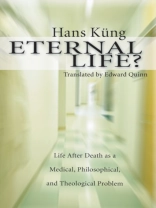The fact cannot be overlooked that we are in the midst of a sociological crisis of orientation on the grand scale. New problems and needs have become insistent, new fears and longings have come to light. Many are looking for a new foothold, a fundamental certainty, a compass for their life and the life of other human beings. The inconsistencies and ambivalence of the phenomena cannot conceal the fact that religion is attracting greater attention: the old religion and many new ones, the Christian religion as well as the Islamic, Hindu, and Buddhist religions. In East and West anyway the God Progress seems to have lost rapidly something of its credibility; belief in a continually better life with the aid of science and technology and also through revolution and socialism has been shaken by serious doubts. And, while the elderly have not been able – with all the aids of psychology – to come to terms with the meaning of death, younger people – supposedly a ‘no future’ generation, apathetic, noncommittal, nervous, and self-destructive – are asking afresh about the missing sense of life. Meanwhile, though science did the most in the last century to destroy belief in immortality and made stupendous efforts to prolong life, it is medicine today that has broken through the taboos in regard to death and with its research into dying has given new life to the question of death and survival. But has medicine – or perhaps parapsychology – proved that there is life after death?
عن المؤلف
The author of twenty books, Hans Kung served as a principal architect of the theological agenda of the historic Second Vatican Council. He is currently Professor Emeritus of Ecumenical Theology at the University of Tuebingen and President of the Global Ethic Foundation in Germany and Switzerland. He is widely acknowledged to be one of the greatest theologians of the twentieth century.







![غلاف Brian Schrag & Julisa Rowe: Community Arts for God's Purposes [Chinese] 貼近神心意的社群藝術 غلاف Brian Schrag & Julisa Rowe: Community Arts for God's Purposes [Chinese] 貼近神心意的社群藝術](https://static.worldofdigitals.com/thumb_webp/740/9781645083740.webp)




